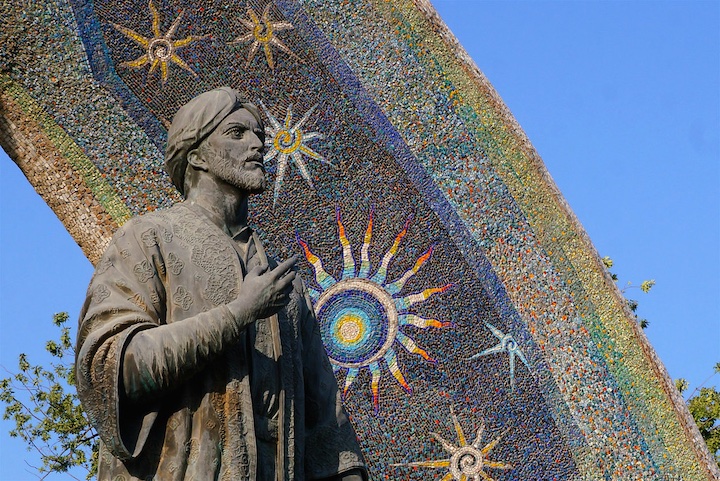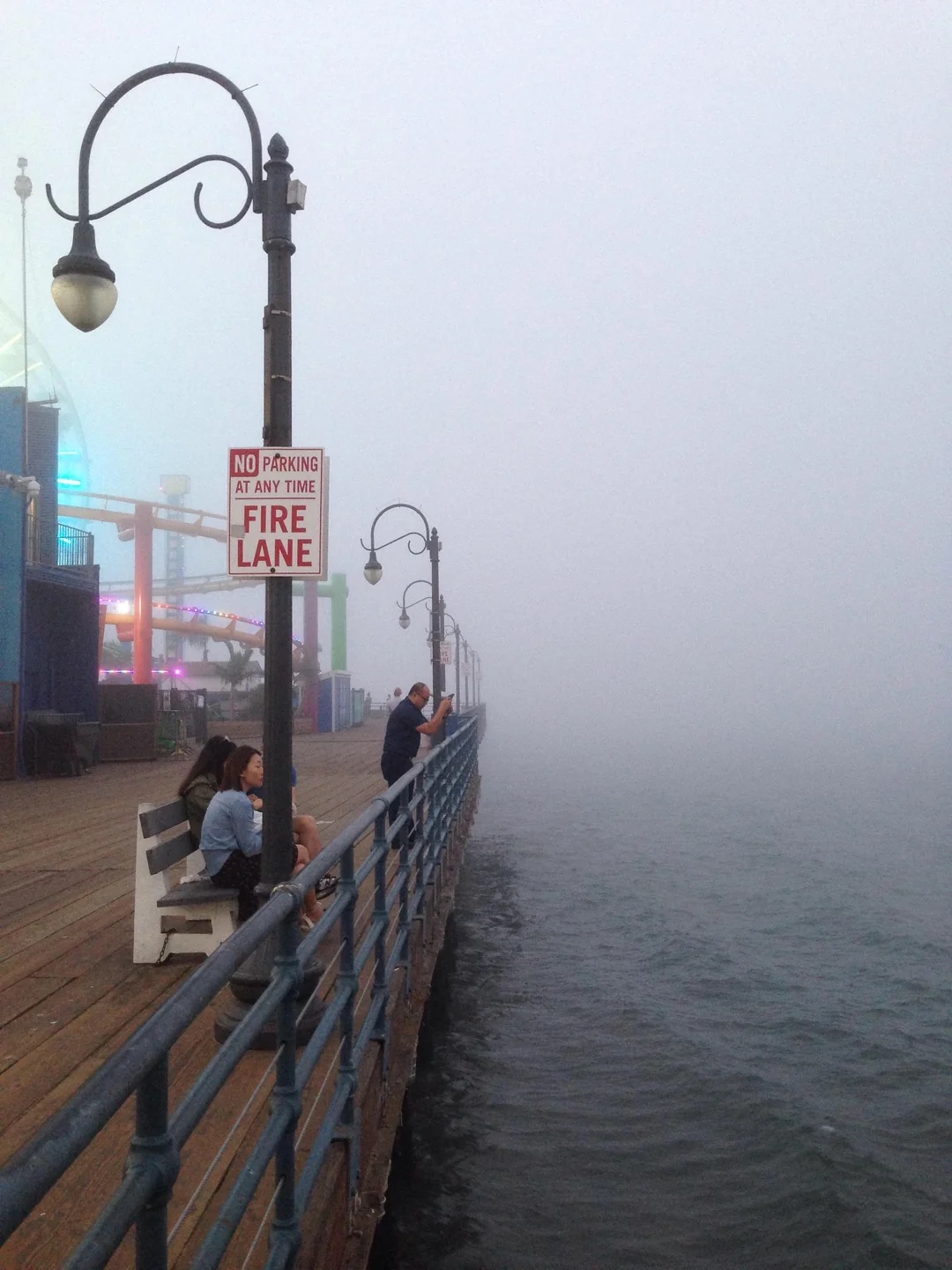ارنستو چه گوارا
فرح نوتاش وین آوریل 2004
ترجمه از اصل انگلیسی

ارنستو چه گوارا
اهل کجا هستی ...
دوست داشتنی من
کوبا ...آرژانتین...پرو یا بولیوی
عشق تو در من
هم چون طلوع آفتاب بر دریا می درخشد
عشق تو در من
چون دانه ای که شوردرخت شدن دارد می روید
عشق تو در من
هم چون باد ... بدون مرز و آزاد می وزد
ارنستو چه گوارا
اهل کجا هستی...
دوست داشتنی من
کوبا...آرژانتین...پرو یا بولیوی
گر چه قلب ها هنوز بر ترور غم انگیزت گریانند
ولی عشق من ...
عشق من به تو
میان دو آینه موازی شکوفا می شود
هنر جاودانه تو
تسخیر قلب ها ست
ستارۀ این درخشش ابدی
عشق به انسان است
جاری و بدون مرز
ستارۀ این تلالوی ابدی
قیام است علیه رشد امپریالیسم
ستارۀ این درخشندگی ابدی
عشق و ایثار است
با فروتنی...بی هیچ نمایشی
ارنستو چه گوارا
اهل کجا هستی ...
دوست داشتنی من
کوبا آرژانتین...پرو یا بولیوی
در رویاهایم ...متهورانه راه می روی
در تو ترس هیچ جایی ندارد
گرمای تو را چه نزدیک به خودم حس می کنم
در قیامم تصویر درخشانی از تو در پیش رو دارم
صورت تو را بر پرچمی از ساتن سرخ تصویر می کنم
در باد می وزد و همه نژاد ها بر آن دل می بندند
عشق من برای همیشه ... سمبل زیبایی حقیقی انسان خواهد بود
او همه را از پرچم سرخ به مقاومت در وحدت چپ می خواند
امپراتورها به نیرنگ های مزورانه ادامه می دهند
تا کاخ های سفید با آجر های طلایی بسازند
ما با دنیایی از غم محاصره شده ایم
ارنستو ها می آیند
و فرداهای بهتری می سازند.
ارنستو چه گوارا
اهل کجا هستی کجا...
دوست داشتنی من
کوبا ...آرژانتین ...پرو یا بولیوی
کتاب شعر 5
www.farah-notash.com

Ernesto Che Guevara
Ernesto Che Guevara,
Where are you coming from my lovely -
Cuba…Argentina, Peru or Bolivia.
Love for you in me,
glows as sunrise on the sea.
Love for you in me,
grows as a seed becoming a tree.
Love for you in me,
blows as the wind with no borders free.
Ernesto Che Guevara,
Where are you coming from my lovely -
Cuba…Argentina…Peru or Bolivia.
Though crying in hearts goes on, for tragic terrors,
Love for you my love, blossoms in parallel mirrors.
Your everlasting arts
are capturing the hearts.
Star of this eternal glow,
human love with no borders flow.
Star of this eternal glow,
rising against imperialism grow.
Star of this eternal glow,
Love and giving…humble but no show.
Ernesto Che Guevara,
Where are you coming from my lovely -
Cuba…Argentina…Peru or Bolivia.
In my dreams you are walking so tall.
In you, fear has no place at all.
I feel your warmth so close to me,
In rising I have sparkling image to see.
On red satin flag I draw your face,
Moving in the wind, love it every race.
For ever my love, will be true human beauty,
Calling from the flag stand in left unity.
Empires go on with dirty tricks,
To build white houses with golden bricks.
We are surrounded with a world of sorrows.
Many Ernestos will make better tomorrows.
Ernesto Che Guevara,
Where are you coming from my lovely -
Cuba…Argentina…Peru or Bolivia.
Farah Notash
Vienna April 2004
Poem book 6
www.farah-notash.com

Deutsch -Ernesto Che Guevara
Aus dem Englischen von A. Pecha
Ernesto Che Guevara
Woher kommst du, mein Geliebter –
Kuba…Argentinien, Peru oder Bolivien.
Die Liebe für dich in mir,
glüht wie der Sonnenaufgang auf dem Meer.
Die Liebe für dich in mir,
wächst wie ein Same der zum Baum wird.
Die Liebe für dich in mir,
bläst wie der Wind grenzenlos frei.
Ernesto Che Guevara
Woher kommst du, mein Geliebter –
Kuba…Argentinien, Peru oder Bolivien.
Auch wenn das Klagen in den Herzen wegen der tragischen Schrecken weiter geht
Die Liebe für dich, Geliebter, blüht auf in parallelen Spiegeln
Deine ewigen Künste
Gewinnen die Herzen,
Stern mit diesem ewigen Leuchten,
menschliche Liebe fließt grenzenlos.
Stern mit diesem ewigen Leuchten,
sich erhebend gegen den anwachsenden Imperialismus.
Stern mit diesem ewigen Leuchten,
Liebe und Geben…bescheiden, aber ohne Gehabe.
Ernesto Che Guevara
Woher kommst du, mein Geliebter –
Kuba…Argentinien, Peru oder Bolivien.
In meinen Träumen schreitest du so aufrecht.
In dir hat die Angst keinen Platz.
Ich kann deine Wärme so nah zu mir spüren,
mich erhebend sehe ich ein strahlendes Bild vor mir.
Ich malte dein Gesicht auf roter Fahnenseide,
wenn sie sich im Wind bewegt, dann liebt es jeder Mensch.
Für immer, mein Geliebter, ist menschliche Schönheit,
rufe uns von der Fahne und wir stehen in linker Einheit.
Die Mächte spielen weiter schmutzige Tricks,
bauen weiße Häuser mit goldenen Ziegeln,
Wir sind von einer Welt voll Sorgen umgeben.
Aber viele Ernestos werden ein besseres Morgen schaffen.
Ernesto Che Guevara
Woher kommst du, mein Geliebter –
Kuba…Argentinien, Peru oder Bolivien.
Farah Notash-
Vienna, April 2004
Poem book 6
www.farah-notash.com

Español- Ernesto Che Guevara
Farah Notash
Viena, Abril 2004
traduccion del ingles de
Rudolfo Rodrigues
Ernesto Che Guevara,
de donde eres, mi amor
Cuba ... Argentina, Perú, o Bolivia
amor para ti, en mi
resplandece como la madrugada sobre el mar
amor para ti, en mi
crece como una semilla que se hace arbol
amor para ti, en mi
sopla libre como el viento que no tiene fronteras
Ernesto Che Guevara,
de donde eres, mi amor
Cuba ... Argentina, Perú, o Bolivia
aunque el llanto de los corazones continúe
por los trágicos terrores
amor para ti, mi amor,
florece en espejos paralelos
tus artes eternamente capturando corazones
estrella de eterno brillo
amor humano que fluye sin limites
estrella de eterno brillo
levantándose en contra del crecimiento imperialista
estrella de eterno brillo
amor y entrega ... humilde pero sin show
Ernesto Che Guevara,
de donde eres, mi amor
Cuba ... Argentina, Perú, o Bolivia
en mis suenos caminas tan alto
dentro de ti no hay lugar alguno para el miedo
siento tu calor tan cerca de mi
al levantarme veo tu fulgarosa imagen
sobre una bandera de seda roja dibujo tu rostro
ondeando en el viento lo aman todas las razas
por siempre, mi amor sera
la verdadera belleza humana
gritando desde la bandera:
! formen la unidad de la izquierda !
imperios siguen con sucios trucos
para construir casas blancas con ladrillos de oro
estamos rodeados de un mundo de penas
muchos ernestos pueden hacer un manana mejor
Ernesto Che Guevara,
de donde eres, mi amor
Cuba ... Argentina, Perú, o Bolivia
Poem book 6
www.farah-notash.com
![]()











